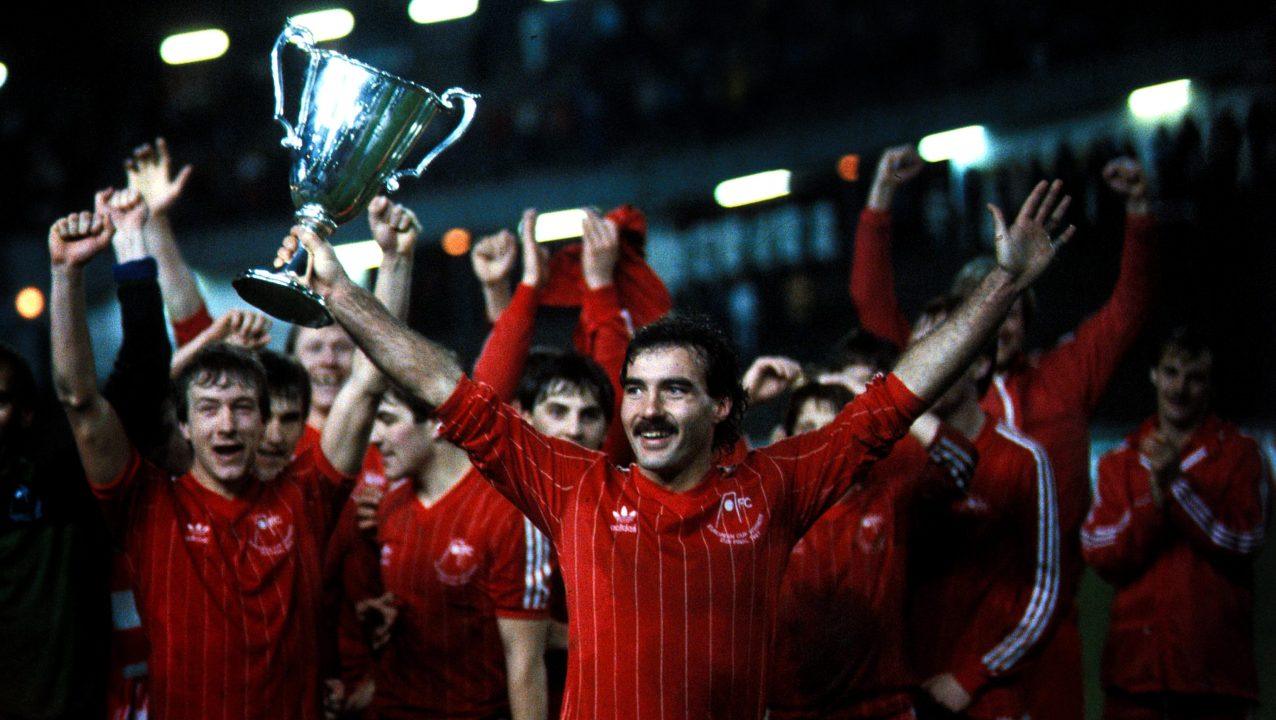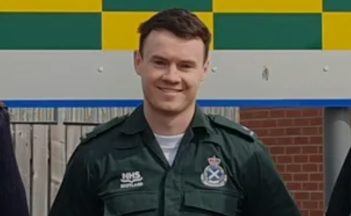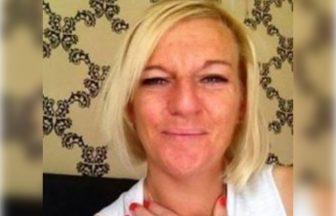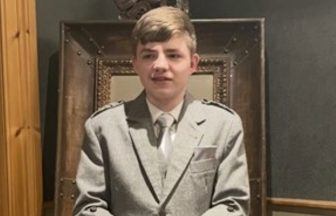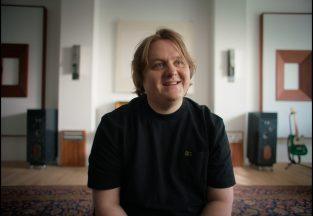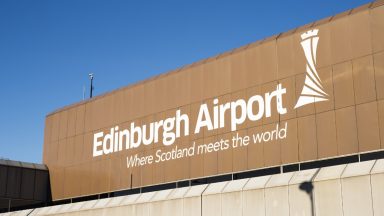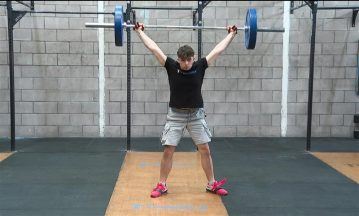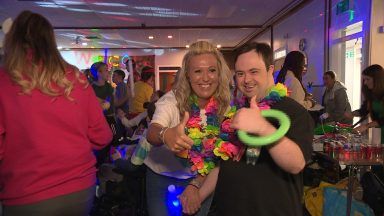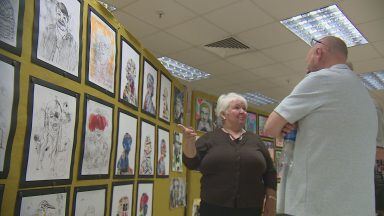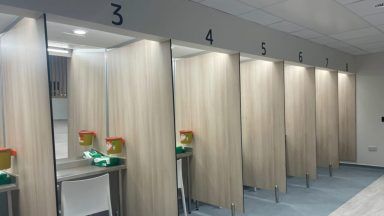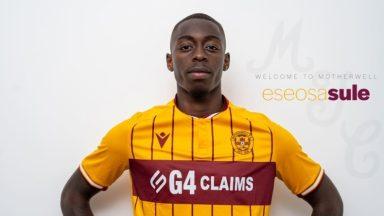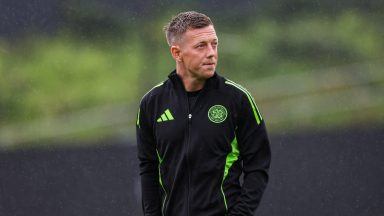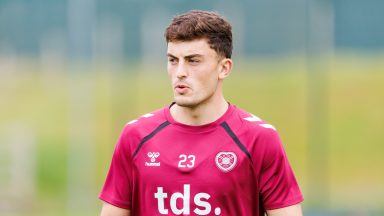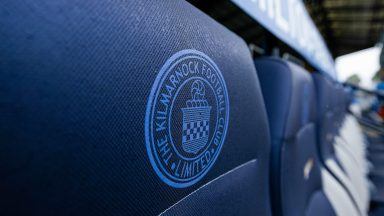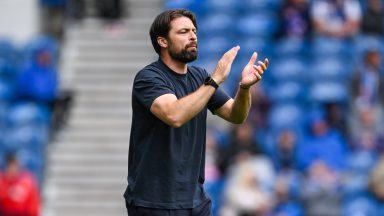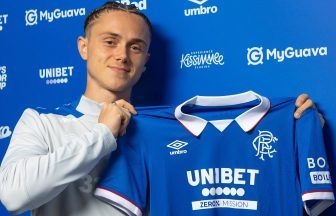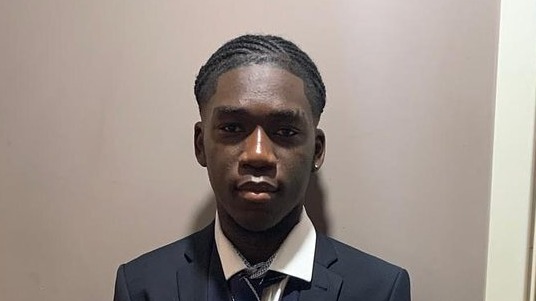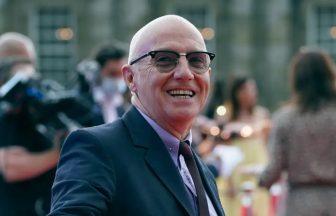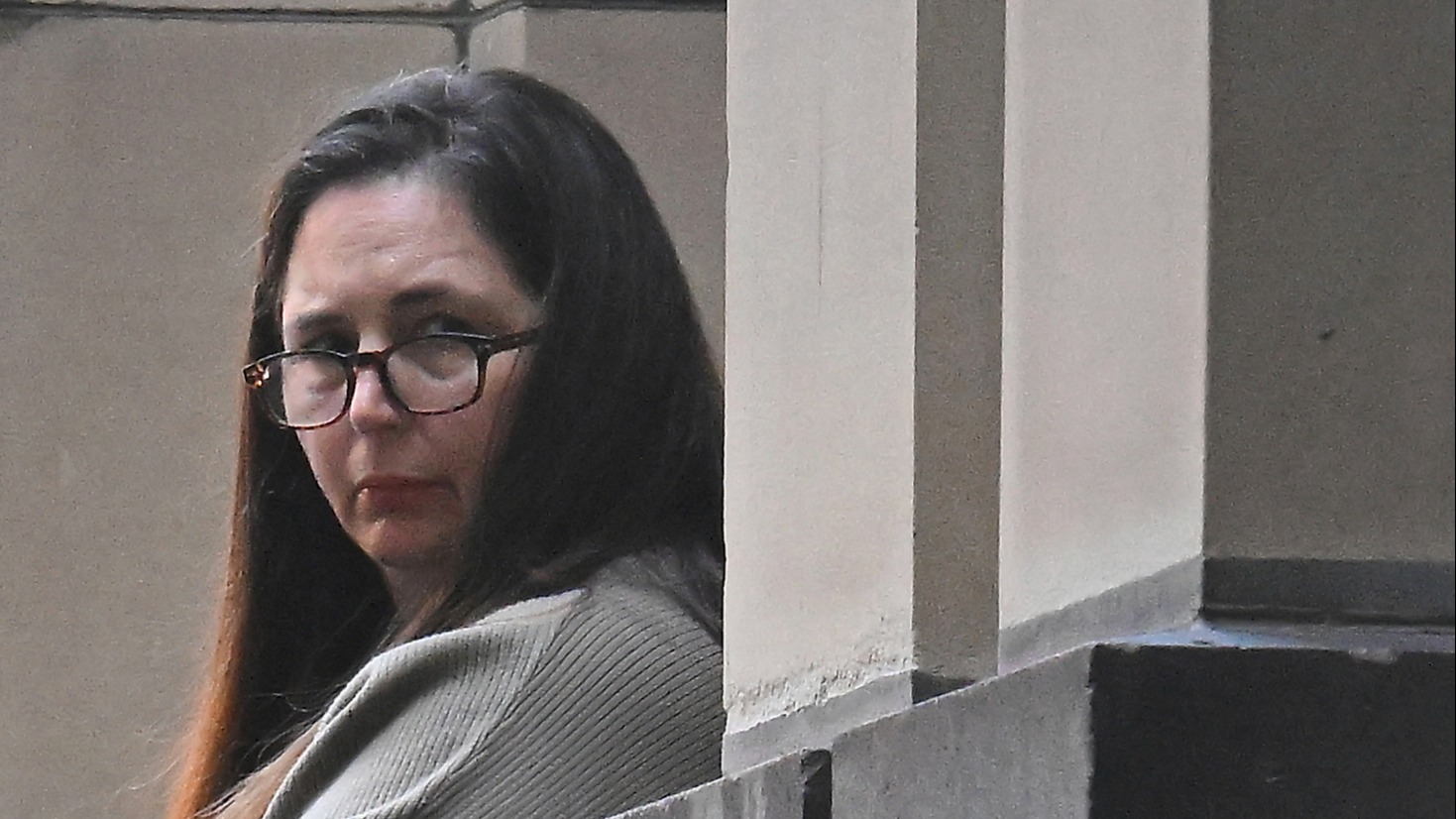In Fergie Rises, Michael Grant’s account of Sir Alex Ferguson’s transformative spell at Aberdeen, John McMaster recalls the manager’s constant drive for his players to set their ambitions high.
“He was always challenging us,” McMaster said. “He was always saying ‘Are youse happy in your comfort zone? Do you want to be watching Coronation Street on a Wednesday night instead of playing European football?'”
On Wednesday, May 11, 1983, nobody connected with Aberdeen Football Club was paying any attention to what might be happening on the soap-opera’s cobbled streets. The Pittodrie club was putting its mark on European football and the players and manager were in the process of being immortalised as club legends.
A 2-1 victory over Spanish giants Real Madrid saw Willie Miller lift the Cup Winners’ Cup trophy, making Aberdeen only the third team to win a major European trophy. Masterminded by the young, ambitious Ferguson, the triumph still stands as the club’s crowning glory forty years on.
It’s an achievement still celebrated as one of the greatest by any Scottish side, and Aberdeen’s players are to be awarded with the Freedom of the City this week as the anniversary is marked at Pittodrie.
Scottish Cup triumph and a door to Europe

The beginning of every European football fairytale starts with domestic success and Aberdeen’s story is no different.
Ferguson had arrived at Pittodrie in 1978 and set about transforming the team and driving the players to meet his high standards, with visible results. The league title has been won in 1980 and the Dons had been runners-up the following year.
A second-placed finish to Celtic in 1982 left just the Scottish Cup to play for and Aberdeen, who had knocked the Parkhead club out of the competition as well as defeating Motherwell, Kilmarnock and St Mirren, were to face Rangers at Hampden.
A central part of Ferguson’s drive to improve Aberdeen had been to tackle a poor record against Celtic and Rangers at their own grounds and the national stadium. His Aberdeen were determined to be Hampden heroes.
The start didn’t go according to plan , with Rangers taking the lead just 15 minutes in through John MacDonald. Alex McLeish equalised for Aberdeen after half an hour but by full-time there was no separating the sides with the score locked at 1-1.
Extra-time proved to be one-sided. Mark McGhee put Aberdeen ahead just three minutes into the added half-hour, and Gordon Strachan extended that lead ten minutes later. Neale Cooper added a fourth to put the result beyond any doubt.
Aberdeen were Scottish Cup holders and along with the famous trophy, they took entry into UEFA’s Cup Winners’ Cup instead of the UEFA Cup place they had earned as Premier Division runners-up.
Swiss rolled over and Dinamo dealt with as Aberdeen make strong start

The path to the final was the longest it could have been after Aberdeen were drawn to play in one of only two preliminary ties ahead of the competition proper.
Swansea City faced off against Braga in one tie, with the Welsh side winning 3-1 on aggregate. In the other, Aberdeen were paired with Swiss minnows Sion.
The first leg was at Pittodrie and the tie was as good as settled by half-time. Eric Black put the Dons ahead after just two minutes before goals from Gordon Strachan, John Hewitt and Neil Simpson had the hosts 4-0 up at the break.
Black struck again in the second half before Mark McGhee and Stuart Kennedy rounded off the scoring for a 7-0 win.
The second half was a formality but Ferguson’s side still dealt with it professionally, Hewitt and Willie Miller netting before McGhee scored twice with Sion managing just one in reply. An 11-1 aggregate score put Aberdeen through with ease for a first round tie that prove far trickier.

First round opponents Dinamo Tirana were an unknown quantity, with Ferguson reportedly uneasy about being unable to watch the Albanian side as he made his preparations for the tie.
Though the teams would have to learn about each other as the tie unfolded, the knockout blow was dealt early in the first leg as John Hewitt scored the only goal of the tie ten minutes into the action at Pittodrie. That was enough for Aberdeen to progress in a competition where the big names had all made winning starts.
Barcelona had been 9-1 winners over Apollon Limassol, with Diego Maradona hitting a first-leg hat-trick. Bayern Munich had edged past Torpedo Moscow, while Tottenham Hotspur had eased to a 7-0 aggregate win over Coleraine.
Real Madrid had drawn 0-0 away at Romanian side Baia Mare but were 5-2 winners at Estadio Santiago Bernabéu. Lech Poznan had beaten IBV 4-0 and earned themselves a date with Ferguson’s side in the second round.
Poles beaten to progress

Once again, Aberdeen found themselves with home advantage in the first leg but against their Polish opponents they should have made more of it.
A dominant display saw Aberdeen create plentiful chances but Black and Strachan both hit the woodwork in the first half as the hosts failed to make possession count. Ten minutes into the second half McGhee scored a header from a Peter Weir cross and the team doubled their lead almost instantly doubled their lead when Weir got on the end of a ball from Strachan for a close range finish.
A 2-0 lead wasn’t the most comfortable scoreline to be taking to Poland but a side that was built on defensive solidity could travel with some confidence.
In front of a hostile crowd, Aberdeen kept their composure and a clean sheet, with Dougie Bell scoring in the second half to put the tie beyond doubt.
Though competent and confident as they had progressed through three rounds of the competition, the excitement and hype had yet to catch on. That changed when the draw for the quarter-finals was made and Ferguson and his players went up against one of the big boys.
Shackling the might of Bayern Munich

While Aberdeen were dealing with Lech Poznan, Bayern Munich were seeing off Tottenham Hotspur with ease, following up a 1-1 draw in London with a 4-1 dismantling of the English side in front of 54,000 fans at the Olympiastadion.
In their fifth season of European football under Ferguson, Aberdeen had failed to venture beyond the third round. In contrast, Bayern’s record over the previous three seasons was: European Cup finalists, European Cup semi-finalist and UEFA Cup semi-finalists. They had never lost a home match in UEFA competition.
Ferguson had been frustrated by not being able to watch Dinamo Tirana before facing them in the earlier round. With a long gap before the quarter-final, he was able to amass all the information he needed on Bayern’s star-studded side and how they played.
The manager drew up his plans, drilled his players, and then saw them follow their orders effectively as Aberdeen defended manfully and frustrated their illustrious opponents in a 0-0 draw. McLeish was first to everything in the air when Bayern put balls in the box, while Miller smothered two-time European footballer of the year Karl-Heinz Rummenigge.
In his autobiography, Ferguson described his side’s efforts as “remarkably disciplined”, high praise from a manager who had apparently lambasted Eric Black for a poor performance weeks earlier, despite the forward scoring a hat-trick against Celtic in Glasgow.
Having secured a positive result in Germany, the Aberdeen boss felt “the crushing weight of expectation” in preparing for the return game. When the match started he was surprised by tactical switches by his opposite number Pál Csernai and saw his side fall behind just ten minutes into the game when centre-back Klaus Augenthaler thundered in a shot from distance. Neil Simpson forced in a leveller before the break but Hans Pfluger volleyed in to put Bayern in a commanding position and Aberdeen needing two goals in the remaining half hour.
Even Ferguson thought Aberdeen’s journey had come to an end but he made tactical changes and substitutions in a last throw of the dice. When the equaliser came, it was from training ground work rather than the touchline activity.

John McMaster and Gordon Strachan stood over a free-kick and ‘accidentally’ both went to kick the ball at the same time. As they turned back to start again, apparently bickering, Strachan spun around and whipped in a cross that the confused Bayern defence wasn’t ready for but Alex McLeish was, heading into the net.
A minute later Bayern keeper Muller failed to get hold of a header from Eric Black and John Hewitt pounced to score the winner. Aberdeen had done it the hard way but were in the last four and beginning to think something special was possible.
Thor dealt hammer blow

While Aberdeen had been stunning Bayern, there had been surprises elsewhere in the competition. Barcelona’s defence of the trophy had ended with a defeat to Austria Vienna on away goals. Real Madrid had set up a semi-final against the Austrians with a 3-2 win over Internazionale.
The real eyebrow-raising result had come in the remaining quarter-final tie, where Waterschei Thor had overcome a 2-0 first leg loss to Paris St Germain to progress as 3-2 winners after extra-time in Genk. Aberdeen had gone straight from giant-killing to being favourites to reach the final.
In his programme notes ahead of the first leg, Ferguson had predicted “another magic night for Aberdeen” and whatever he said in his team talk worked a charm. There were less than two minutes on the clock when Dougie Bell made a mazy run and set up for Eric Black to make the simplest of finishes and put Aberdeen 1-0 up.
It was only two minutes later when Bell forced another error in the Belgian defence and Neil Simpson collected the ball, worked himself some space and fired low into the net. 2-0 and cruising.
In the second half Mark McGhee got on the scoresheet with a close-range finish from a Bell cross, then the striker set up Peter Weir to head in the fourth. Waterschei, who had future tennis star Kim Clijsters’ dad Lei in defence, pulled a goal back through Lars Gudmundsson added a fifth while lying on the turf after a goalmouth scramble.
The return leg was a formality and Waterschei were 1-0 winners. More eyes were on the other semi-final to learn who Aberdeen would face in Gothenburg. Real Madrid had drawn 2-2 in Austria in the first leg, and beat the Viennese side 3-1 at home.
Ferguson, the final, and glory in Gothenburg

While fans scrambled to arranged tickets, accommodation and travel to Sweden for the final, Aberdeen’s management were looking to learn how they could overcome one of European football’s most famous names.
Ferguson had travelled to the Spanish capital to watch Real’s semi-final match against Austria Vienna and, though they won 3-1, he had seen enough to think that they were beatable. More than that.
As Grant tells it in Fergie Rises, he phoned Aberdeen chairman Dick Donald and said “I think we’re a certainty”. The chairman, keen not to have the Dons painted as favourites, warned Ferguson not to share his thoughts with anyone else.
Speaking to STV ahead of the anniversary, Ferguson’s assistant Archie Knox shared details of the manager’s next call.
He said: “I can remember Alex phoning me after being to watch them and his words to me were, ‘We’ve got a great chance in this final, a great chance’ and then he added, ‘But don’t you go telling the players, I don’t want them to know, we’ll just keep it quiet until the week of the final and then we’ll start our build-up from there.'”
As the excitement built towards the game, Ferguson kept discussion of the opposition to a minimum, preferring not to build any hype around the Spanish side and encouraging his players to focus on their own game.
A manager who would go on to be renowned for his mastery of mind-games, Ferguson even learned from an older hand.
The Aberdeen boss had invited Celtic great and Scotland manager Jock Stein to travel with the team to Sweden as a guest and advisor. On Stein’s recommendation, Ferguson bought an expensive bottle of whisky to take to Real Madrid manager and club legend Alfredo Di Stefano as a gift.
Di Stefano was surprised but pleased with the generous offering when he met Ferguson on the eve of the match but there was also psychology at play in the gesture.
“Let him feel important,” Stein had told Ferguson. “As if you are thrilled just to be in the final and only there to make up the numbers.”
While keen to have Di Stefano feeling comfortable with the Spanish side’s tag as pre-match favourites, the message from Ferguson elsewhere was a little different. In a newspaper interview he said “If we go into the match as underdogs we will finish up with memories instead of winners’ medals. And we are not in Gothenburg to finish as losers.”
Dealing with the media in the build-up, he showed confidence in his side by volunteering his starting line-up in advance, even going as far as to distribute printouts. By his thinking there was little to lose as he knew his strongest side and so did most who had watched Aberdeen.
There was one selection decision to be made that had nothing to do with how to defeat Real Madrid though. Stuart Kennedy had suffered what would end up being a career-ending knee injury in the semi-final and had been trying to conceal the extent of his difficulties from Ferguson in the build-up to the final. The manager saw through Kennedy’s efforts but told him that he would be on the bench regardless of fitness.
With only the starting eleven and five substitutes being given medals, Ferguson believed that Kennedy’s efforts in getting the team to the final meant he deserved to have that chance. He later said that it had been one of his finest decisions in management to show loyalty to “a first class player and a man you could trust implicitly”.
The starting line-up he named couldn’t match Real Madrid for star quality but was packed with talent and character, and had been forged into a formidable unit. Having gotten so far with an attacking intent, there was little chance of anything changing for the final.
Shortly after kick-off in the Ullevi Stadium Aberdeen carved out their first chance, with Neil Simpson firing wide after trying his luck from distance. The next came for the Dons as well, Gordon Strachan crossing and Eric Black smacking the crossbar with an ambitious volley.
Only had a few minutes had passed and Aberdeen had enjoyed two good opportunities. In the seventh minute they would have their third, and take it.
Madrid defender Juan Jose looked to clear after Alex McLeish had headed towards goal from a Strachan corner. The attempted clearance was miscued and dropped in front of goal. Eric Black reacted before Madrid keeper Agustin and smacked the ball into the back of the net. Aberdeen were ahead and Real were reeling.
The lead only lasted for seven minutes. Alex McLeish tried a back pass for goalkeeper Jim Leighton only to look on as the ball slowed in the mud on the rain-soaked pitch. Veteran Real forward Santinalla got there a split-second ahead of Leighton and was brought down with referee Gianfranco Menegali awarding a penalty.
Juanito stepped up, sent Leighton the wrong way and drew the Spanish side level. The teams went in at half-time locked at 1-1.
McLeish had been horrified at his error with the back-pass and, in Richard Gordon’s detailed account of the match Glory In Gothenburg, he said he had “hit it blind”.
“Willie and I hit it blind back to Jim a million times because of our telepathy but on that occasion I didn’t carry through on the advice I had given to other players.” he said.
The mistake was seized on by Ferguson in the dressing room at the break but after tempers flared the manager changed tack and challenged the team in a different way, asking them if they wanted to win, and if they were prepared to show how good they were. McLeish didn’t put a foot wrong as Aberdeen lifted their game after the restart.
Strachan and Black had chances, Cooper tried his luck and then Black had another golden opportunity when Weir’s cross was deflected but he headed well over. Aberdeen were on top but couldn’t make it count and extra-time was needed to separate the sides.
Real had the first chance of the added half hour but shot wide before Doug Rougvie forced a save with a powerful header. Santillana tested Leighton and half-time in extra time passed.

John Hewitt had been brought on as a substitute for Black after an injury in the closing minutes of regulation time but Ferguson hadn’t been pleased with his contribution and said that he had been considering subbing the sub as time ticked down. Deciding against it was one of the manager’s better decisions.
Peter Weir collected the ball and began a run down the left, leaving three Real players in his wake. He knocked a long pass forward for Mark McGhee, who used a burst of pace to get clear of his marker before playing in a cross. Hewitt made a near post run and leapt, beating Agustin to the ball and glancing a header across and into the net.
“It was just a case of me letting it hit my head and directing it in the goal – I couldn’t really miss, Hewitt told STV ahead of the anniversary.
“I keep saying that to people, I think if I had missed that goal then I would probably have had to leave Aberdeen. But as it turned out to be, it was the winning goal of the evening and to date the most important goal in the club’s history.”
Real Madrid had eight minutes to fight back but could muster nothing. The final whistle went and brought wild celebrations in the pouring rain as Ferguson and his players celebrated an unlikely ascent to footballing greatness.
The conquering heroes returned to Aberdeen to an open-top bus tour with the trophy and streets lined with partying fans. Ferguson described the scenes afterwards as “unforgettable” and believed his time as Aberdeen boss was what made him as a manager.
In his autobiography, he has plenty to say about the game itself and the character and talents that made up the side that is still being celebrated 40 years later but he believes the definitive quote came from Real Madrid manager Alfredo Di Stefano in the wake of his side’s defeat.
“Aberdeen have what money can’t buy,” Di Stefano said. “A soul and a team spirit built in a family tradition.”
Follow STV News on WhatsApp
Scan the QR code on your mobile device for all the latest news from around the country


